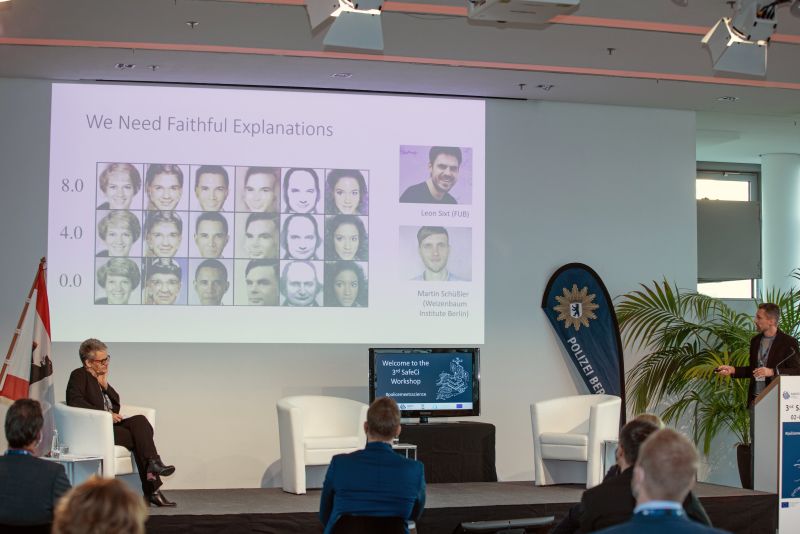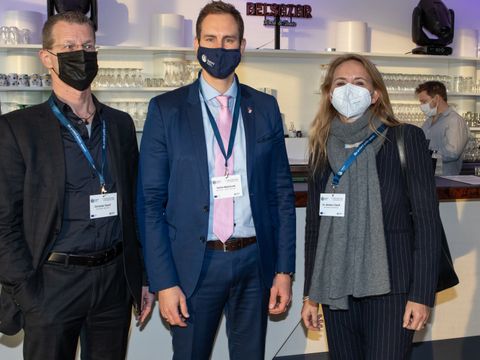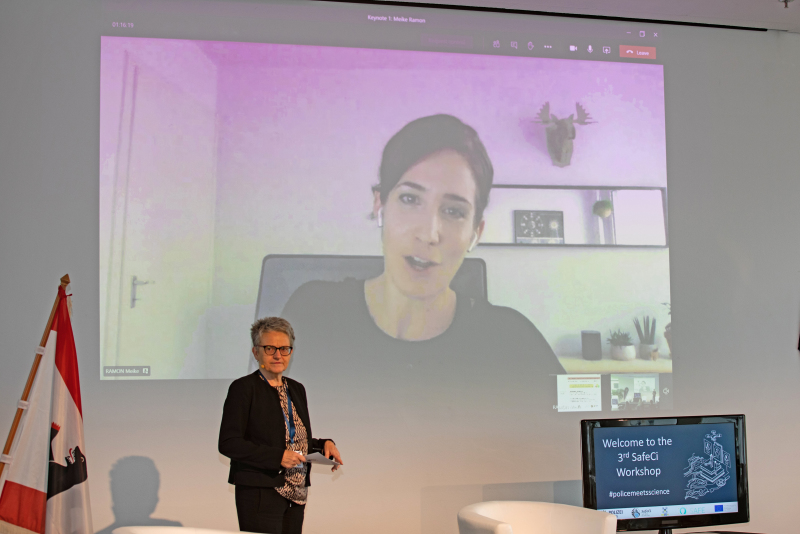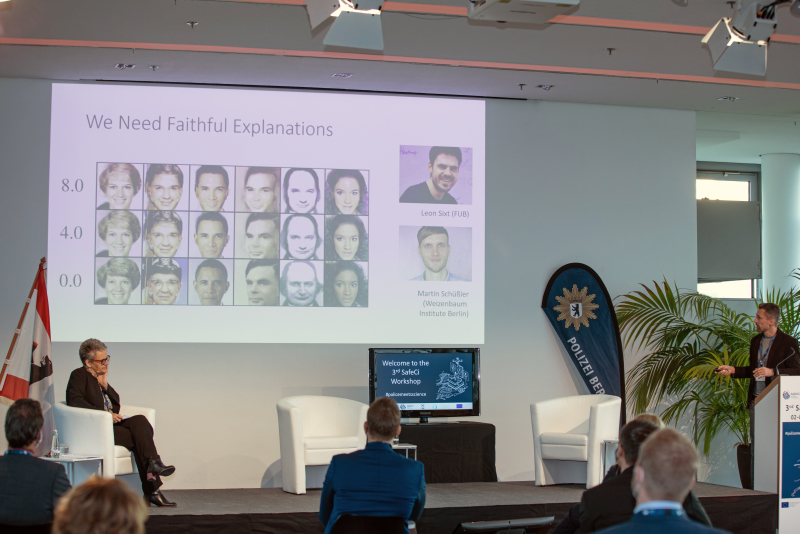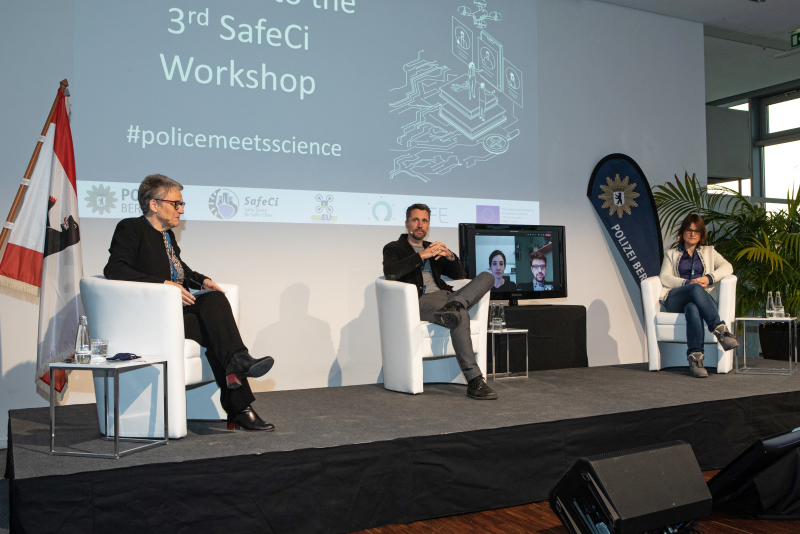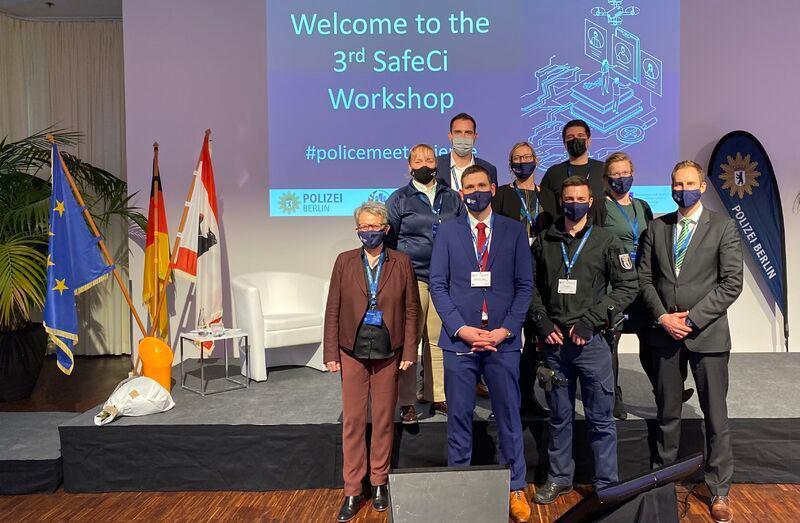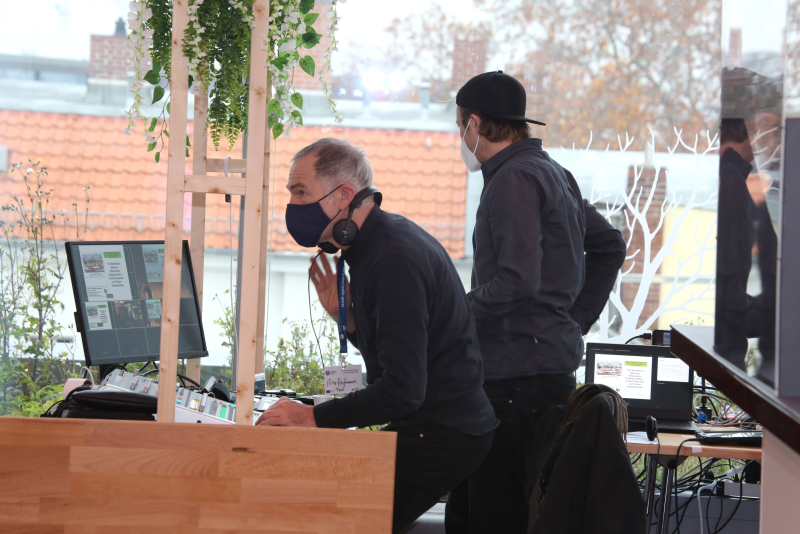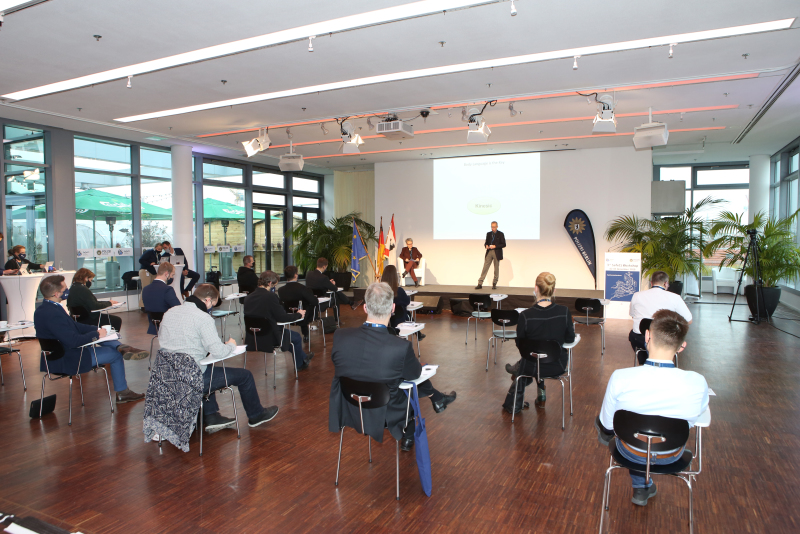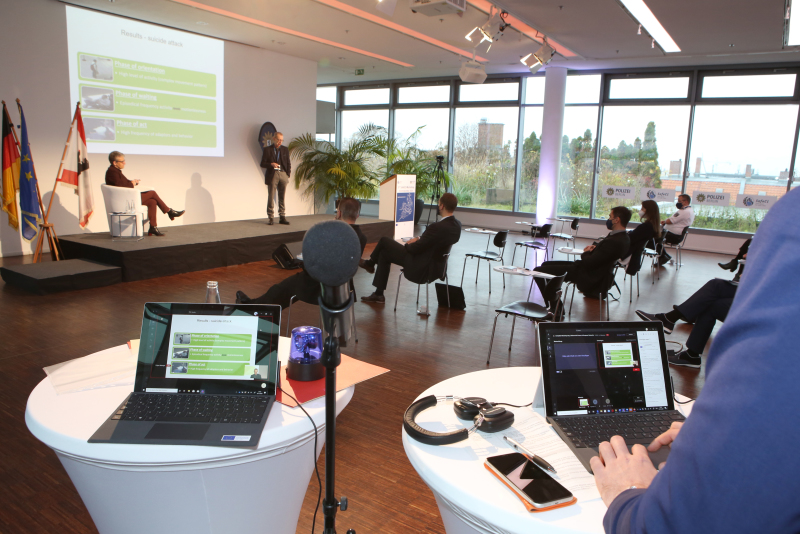From 02 to 03 December 2020, the 3rd SafeCi Workshop took place as a hybrid event. 150 participants, scientists and police officers from all over Europe – they all came together in analogue and digital form.
SafeCi aims to bring science and police practice closer on specific topics: not only do they complement each other – they need each other. And always with the goal of making public space safer.
Stefan Majchrzak, SafeCi project manager: “There are many ways in which police forces, scientists and academics benefit from each other. On the one hand, scientific findings play an increasingly important role in police work, and on the other hand, police work is an important research topic.”
Above the rooftops of Berlin – in the Alice Roof Top Garden – the hybrid workshop took place under strict hygiene rules. The place resembled a TV studio – a stage at the front, high-tech in the background, cutting and streaming everything live, plus countless laptops, cameras, mics, video editing desk and digital audio console.


 German Sign language
German Sign language Easy language
Easy language